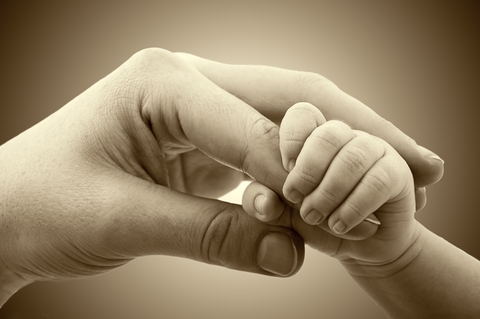We took an interview from Pursuit Magazine about Six Things You Should Be Careful About The Hague Child Abduction Convention In Japan.
Below are the questions and answers between the interviewer and Japan PI.
What experience do you have with the Hague Convention?
We provide specialized investigative services in Japan for non-Japanese clients. As a detective agency, we are often called upon to investigate the whereabouts of children brought into Japan. After the whereabouts of the abducted children are located, we may monitor their activities.
However, the Hague Child Abduction Convention is a civil treaty regulating international parental child abduction. If a Hague Convention child-return proceeding is filed, the Ministry of Foreign Affairs and law enforcement agencies are responsible for resolving the matter. Japan’s courts and law enforcement agencies do not outsource their work to private investigators. Therefore, there is no room for our involvement in trouble-free child-return proceedings. In trouble-free cases, the Ministry of Foreign Affairs, the courts, and lawyers will proceed according to the rules of the Hague Convention.
Japan signed the Hague Convention in 2014. According to the Ministry of Foreign Affairs, by September 1, 2022, there had been 486 applications for assistance; 429 were granted. In reality, however, there are many cases where aid has not been processed because the taking parents are missing. Statistics show that 56 applications for assistance have been rejected. It was confirmed that the taking parents were victims of domestic violence (DV) or abuse, and those applications were denied.
The Hague Child Abduction Convention is meaningless if the taking parent disappears or fails to abide by legal decisions. If this happens, the abducting parent must serve Japan with a civil judgment ordering the child’s return to the home country or a criminal sentence for child abduction. At that time, it is necessary to confirm the whereabouts of the taking parent.
In most cases, we are in charge of investigating their whereabouts. Once their whereabouts are known, we are sometimes asked to conduct surveillance of the children’s living conditions for peace of mind.
Loopholes in the Hague Child Abduction Convention
Loopholes in the Hague Convention may prevent the Convention from working as it should. Here are some of the loopholes and problems:
The location of the taking parent is unknown.
If the whereabouts of the taking parent and the child are unknown, the procedures of the Hague Convention will not proceed.
It is more challenging to locate a person in Japan than in other countries.
The non-Japanese parent does not know the Japanese language or Japanese law. They need to learn the spouse’s name in Japanese characters (basic information for searching for people) and the Koseki Family Registry or the basic civil registration system in Japan. They need to know the honseki (an ID number) necessary to access this system. This makes it difficult to locate them in Japan.
In addition, the national ID number system (e.g., SSN) is not widespread in Japan. Citizens’ addresses are recorded in the Koseki Family Registry and the Juminhyo Residence Registry. These systems are unique to Japan and difficult to understand for non-Japanese. (Even among the Japanese, few precisely understand this system.) Furthermore, this system is entirely confidential. Only lawyers have access to it.
Japanese people tend to avoid direct negotiations and litigation. Many Japanese tend to fall into the pattern of ‘Johatsu’ (vanishing) without permission and resetting their lives rather than legally asserting their rights and seeking a just resolution. The Japanese have a habit of silently disappearing from their former lives whenever a problem arises. This makes it even more challenging to locate them in Japan.
The Hague Convention may not function because the taking parent needs to be included.
The Hague Convention is ignored.
Even if the whereabouts of the taking parent and the child are confirmed, it does not necessarily mean that the taking parent will return the child, following the Hague Convention’s procedures. It is also not easy to get the court to allow enforcement of the child. In addition, there are cases where the taking parent interferes with court enforcement. Since the Hague Convention is a civil case, the enforcement officer cannot forcibly take the child away.
Additionally, there are cases where the taking parent may claim that they are victims of domestic violence. They can also apply for DV/abuse protection measures and block access to their address records (Koseki Registry/Juminhyo Registry).
If it is proven that the left-behind parent has committed domestic violence, the Hague Convention does not apply. Japanese attorneys sometimes fabricate DV victims to make this exception apply. This false DV issue has become a social problem.
The DV/abuse protection measures are just for the registration system. Sometimes, the taking parent abuses this protection measure to conceal their address. This has also become a tool to obstruct enforcement.
Japanese Custody System and Judicial Precedents
Japan is a signatory to the Hague Convention. However, the Hague Convention is inconsistent with domestic laws. Therefore, if it doesn’t function smoothly, the consistency with domestic laws will hinder its effectiveness.
While joint custody is standard worldwide, there is only the sole custody system in Japan. So custody is only granted to the father or the mother after the divorce.
There are two rules in Japanese case laws: The first is the principle of continuity. After separation, custody is given to the parent who has been with the child longer. This is also a cause for child abduction. The other is that parental and custodial rights are automatically given to mothers. If there are no problems with the mothers, they are automatically given custody. Both of these are old-fashioned rules. However, Japanese courts follow past precedents in issuing their rulings.
FYI
MOFA Hague Convention Implementation Status
Ministry of Foreign Affairs of Japan Hague Convention Implementation Status
https://www.mofa.go.jp/mofaj/files/100012143.pdf
As of September 1, 2022
| Region | Type | Application | Decisions |
| Inside Japan | Return | 176 | 155 |
| Visitation | 129 | 111 | |
| Outside Japan | Return | 140 | 125 |
| Visitation | 41 | 38 | |
| Total | 486 | 429 |
Inside Japan
Applications for return assistance: 176 (Assistance decisions: 155)
Applications for visitation assistance: 129 (Assistance decisions: 111)
Outside Japan
Applications for return assistance: 140 (Assistance decisions: 125)
Applications for visitation assistance: 4141 (Assistance decisions: 38)
Total: 486 (Assistance decisions: 429)
How do private investigators get involved in these cases?
Private investigators can get involved in cases where an application for assistance under the Hague Child Abduction Convention has been filed, but the administration has been unable to assist successfully.
As mentioned above, we are often assigned to investigate the whereabouts of children who have been taken away. Furthermore, in cases where there is a possibility that the parents are abusing or neglecting the children, we are in charge of investigating the status of the child’s living conditions.
For the peace of mind of the left-behind parents, we may also be responsible for checking on the child’s condition and taking video footage through surveillance or inquiries.
What is your first step when a client approaches you with an international child abduction case?
Some clients approach us without sufficient knowledge of the Hague Convention. In that case, we will determine if the case is eligible for Hague Convention assistance. If the Hague Convention covers the case, we advise them to hire a Hague Convention lawyer. The MOFA will refer Hague lawyers to the LBPs.
In cases where the Hague Convention is not functioning, we should handle the whereabouts investigation, among others, and the attorney should address the other issues. We advise our clients on such matters as appropriate.
Many of our clients become paranoid because of the frustration of being separated from their children. Mental care for them may be part of our job.
In some cases, there is domestic violence or abuse (e.g., nonpayment of child support) on the client’s part. In this sense, we must ensure there is no malicious intent on the part of our client. We check the interview atmosphere with the client to ensure there are no violent tendencies.
If the client has hired an attorney, we may have the client share the attorney’s information and strategies or ask that attorney to mediate the case so that the client does not engage in problematic behavior.
In Japan, parents are rarely punished. However, left-behind parents are punished if they take their children back. This is unreasonable, but it’s the reality. We provide such information and advise our clients not to overreach.
Some parents have committed suicide because they could not see their children. Mental care to deter such suicides is also essential.
How long does the process generally take?
About two weeks after the Hague Convention application is filed, the court sets a date for the first hearing. If the process goes smoothly, the child will be returned within six weeks.
However, if the client does not know the whereabouts and identity of the parent from whom the child was taken in Japan, the process will not proceed.
If the parent who took the child is missing, but the child is hiding in their parent’s home, we can visit the location and locate them immediately.
Suppose the parent who took them is hiding their address. In that case, we can conduct a behavioral investigation of their parents, research their Koseki Registry or Juminyou Registry, or conduct media research based on the client’s original information. If this happens, a whereabouts investigation can take three to four weeks.
What are the biggest obstacles you face in these cases?
It isn’t easy when the abducting parents are not in their hometown and cannot obtain a certificate of residence. These abducting parents do not have a job open to the media.
Also, even if their whereabouts are known, the abducting parents will not respond to requests for restitution with lawyers. In addition, Japan has a sole custody system where custody is given to either the father or mother. Furthermore, the longer the abducting parent lives with the children, the more likely they will be awarded custody (the principle of continuity).
The longer the parent has lived with the child, the more advantageous it is for the parent who has taken the child to obtain custody. The parent removed from the child has less chance of gaining custody.
If the abducting parent abuses the child, there is hope for the client. However, that is unlikely. In other words, the obstacle is that our investigation is unlikely to resolve the underlying problem.
Some cases requested by non-Japanese nationals involve a child taken to Japan from outside Japan. On the other hand, there are cases in which a non-Japanese client’s child was taken to Japan. There are two types of child removal cases: cross-border cases and domestic cases. The Hague Convention on the Removal of Children applies only to cross-border cases.
After the Corona disaster, the number of child abduction cases has decreased. However, with the opening of Japanese border controls, there is a strong possibility that international child abduction will increase again.
What are some beginner mistakes that other PIs might make when investigating international child abduction?
Sometimes, a client’s spouse and child have evaporated out of the country, and the client, in his/her frustration, tries to locate the child, ignores the laws, and tries to get the child back on his/her own.
If the client ignores the laws and tries to bring the child back on his/her own, the client may be punished. If the PIs are involved in the case, the PIs may also be in trouble.
In addition, PIs are not legal experts. PIs should not make decisions based on assumptions but should conduct appropriate investigations while listening to the opinions of the client’s lawyer.
What are some tips for working with law enforcement in these situations?
There is only a registration system for PI work in Japan and no licensing system. In this sense, law enforcement agencies in Japan do not directly commission investigations on PIs.
However, there are cases in which a related attorney or the client himself/herself requests us to investigate the whereabouts or the living conditions of the abducted children for court proceedings.
Law enforcement agencies need to confirm the whereabouts of abducted children and collect information on the living conditions of the children. As mentioned above, detective agencies cannot be directly involved with law enforcement agencies in Japan. However, in countries where law enforcement agencies are allowed to outsource investigations to private agencies, there is room for PIs to get involved.
In Japan, parents who abduct their children are not treated as criminal cases. Japanese law enforcement agencies tend to focus more on protecting victims of domestic violence than on child abduction. Because of Japan’s domestic laws, lawyers and PIs often struggle to resolve child custody disputes in Japan.
What advice about the Hague Convention do you have for other PIs?
In Japan, there is not much room for PIs to get involved in cases where the Hague Child Abduction Convention works well, and the parties involved try to abide by the Convention.
Loopholes in the Hague Child Abduction Convention have been reported in the media.
As a result, there have been an increasing number of cases where such loopholes have been exploited to challenge the validity of the Convention.
Detectives need to accumulate the knowledge, skills, and experience to assist in resolving such exceptional cases. In addition, there are cases where a client is frustrated, angry, and emotionally unstable because his or her spouse and children have suddenly left for a foreign country. We also have cases where the client is the perpetrator of domestic violence or abuse. In this sense, we need to analyze the client’s situation and provide appropriate counseling calmly.




